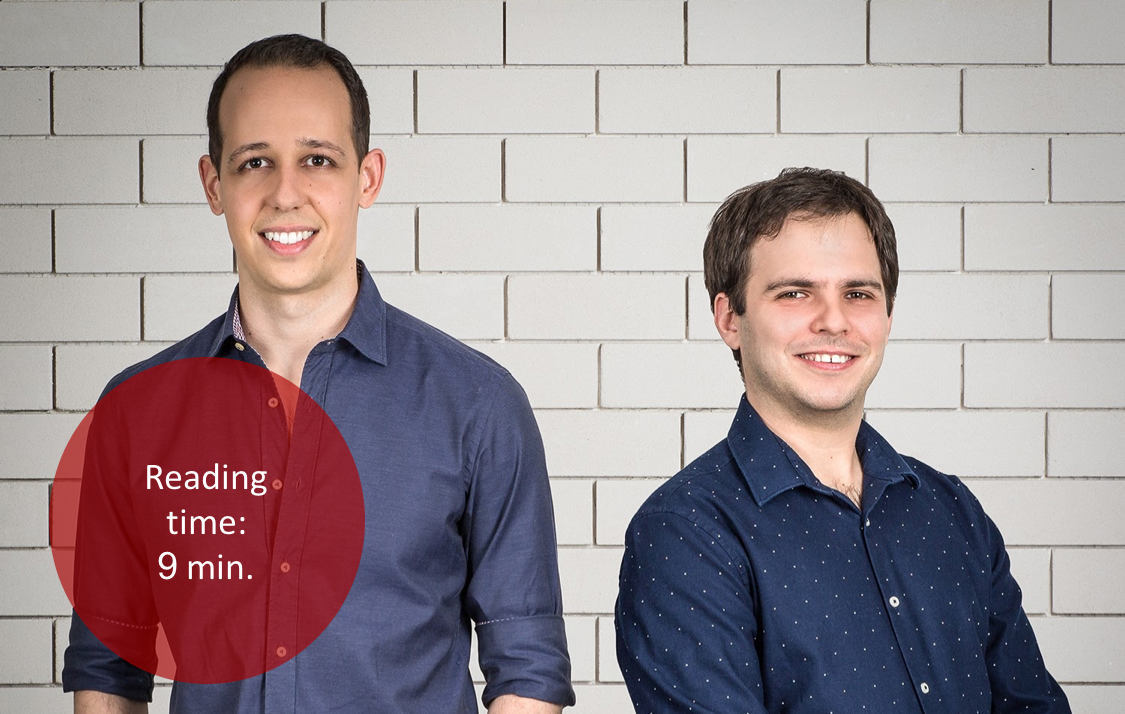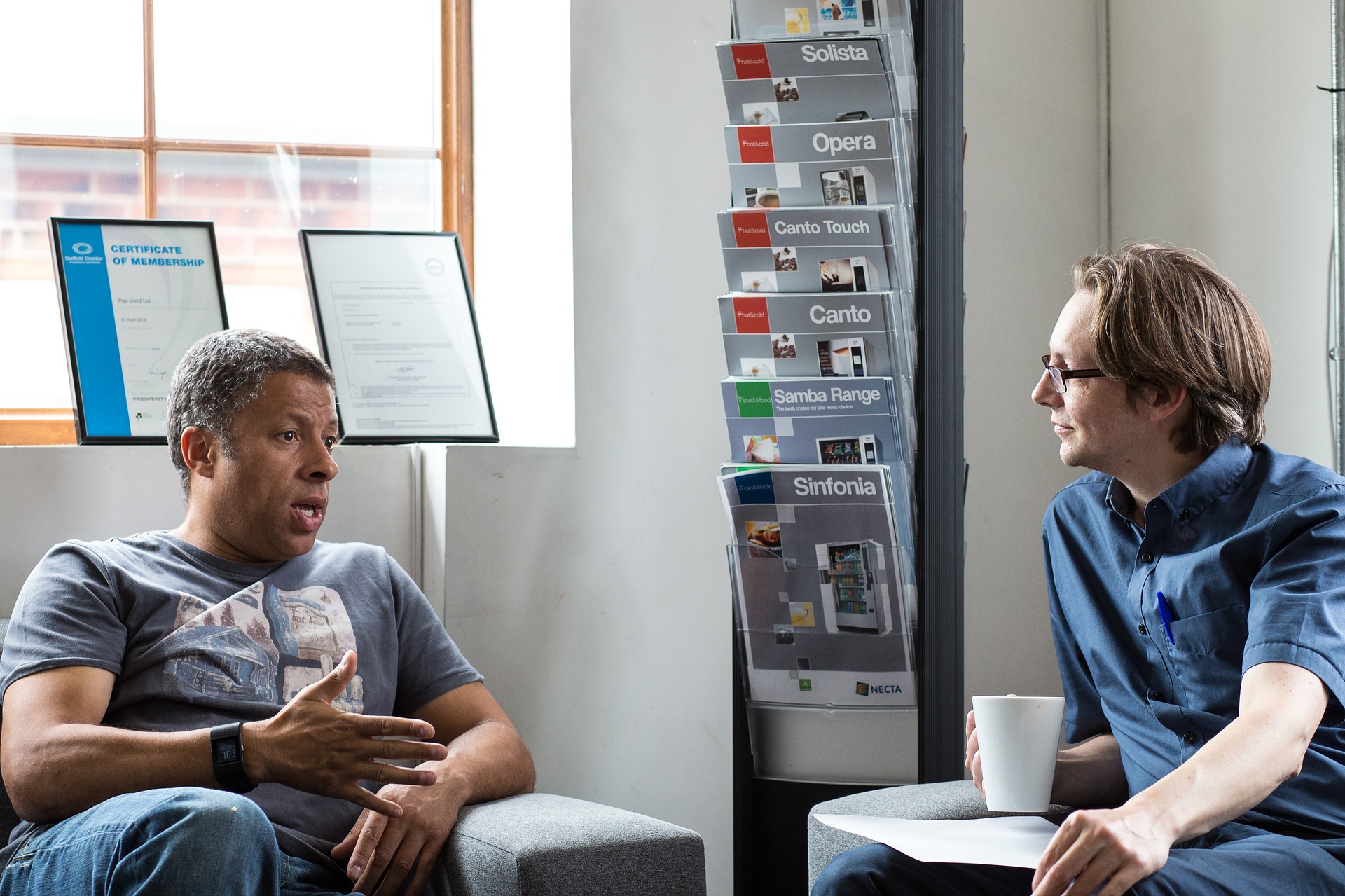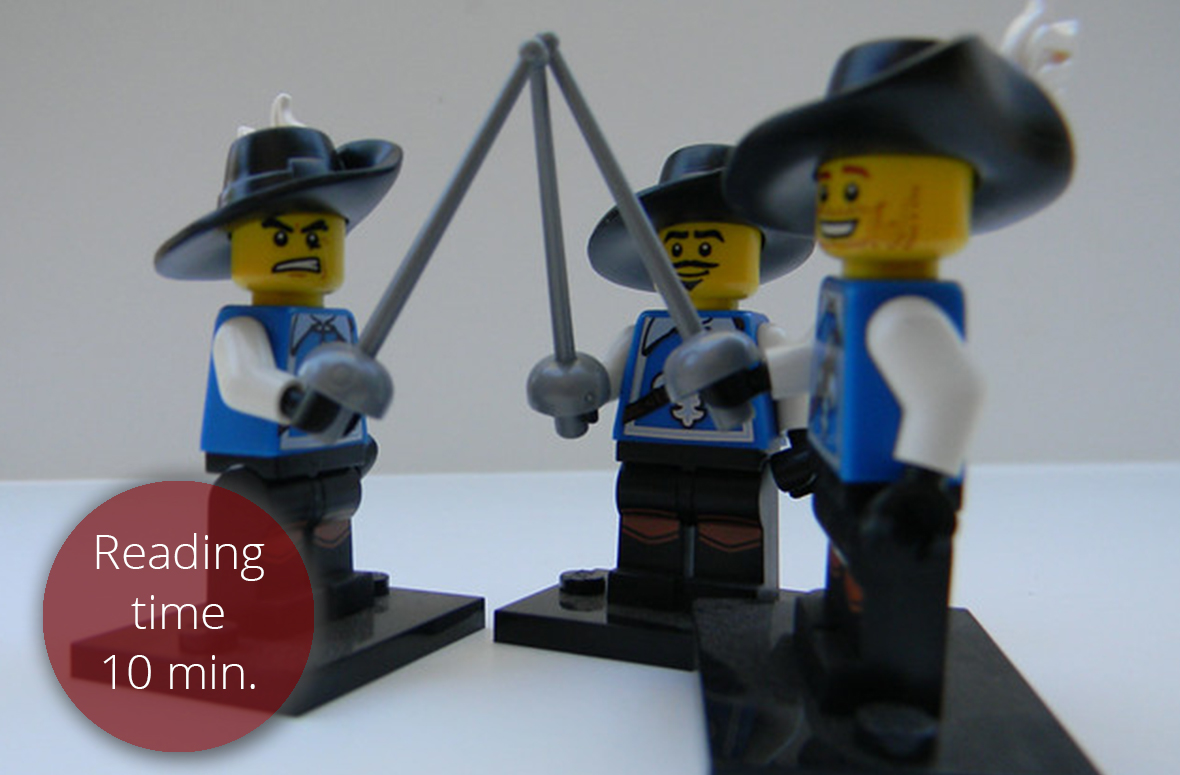Startup Founder Insights - Uncensored
01.12.2020

This interview is a part of an interview series called “Startup Founder Insights - Uncensored”, which is focused on educating inexperienced entrepreneurs. Since the best way to learn is through experience, we have set out to interview seasoned founders who will share their journeys and provide exclusive insights into the world of entrepreneurship to help you skyrocket your company.
In this installment of the series, Tomer Yona interviewed Raz Golan CEO and Co-Founder of Shopic.
Tomer: Firstly, Can you tell us about the product that you have developed that is called Shopic?
Raz: Sure. We always knew we wanted to establish a venture, the question was "What kind of problem do we want to solve?". To figure this out we conducted systematic research on different domains and fields around the world that we thought might have some sort of difficulty or problem. For each problem we encountered, we made sure to study what kind of solutions already existed and are offered in the market. As a part of studying the field, we spoke to some potential clients to get to know their own point of view regarding those problems and what kind of solutions are needed but missing from the market. Once we got to the physical retail market it was crystal clear that we had found our way. The physical retail market is a traditional market that hasn’t changed over the last few decades, and has been the same for both the retailers and for their customers (which are us- the shoppers who go out to stores to shop). Basically, the traditional shopping process causes two serious problems that affect all parties. First of all, it entails heavy operational expenses for the retailers themselves. Secondly, it wastes our precious time as customers when we stand in those very long checkout lines, which keep us stuck in the old-fashioned shopping experience. Once we realized that a lot of money is being wasted, we decided to take this challenge and come up with an innovative solution. After speaking to some of the largest retail chains in Israel and around the world, we concluded that we need to bring up a solution which completely transforms the shopping experience, without affecting the store’s internal operations. Having a technological background as founders helped a lot. Shopic revolves around a Frictionless Shopping solution that allows customers to shop and checkout in physical retail stores without waiting in line. During the shopping trip we interact with the customers, and offer them customized offers and rich information about the products. Our vision was to bring the online shopping experience to an offline, physical store. We began implementing our solution with retail chains in Israel and in the United States, and with time we realized that our solution brings the most value in medium and large format grocery stores. Today we focus solely on these types of stores.
Tomer: Is the USA your Go To Market ?
Raz: We are in the United States, but we have significant customers in Europe and Israel as well.
Tomer: You said at the beginning that you had brainstorming sessions with clients who came from a retail market background meanwhile your team had a tech background?
Raz: We are technologists, originally from the cyber security domain. We had no previous knowledge in the retail market, everything related to retail was new to us. It was fascinating to learn about this world from a new perspective - the retailer’s.
Tomer: How did you guys build your team, and how do you create a positive mind of state to motivate your team?
Raz: Both Eran (Co-Founder, CTO at Shopic) and I believe that building a power-team is one of the most important fundamentals of a company. A couple of the things we emphasize and are very strict about regarding recruiting our team are: professionalism, and cultural and personal connection to the team. In the end of the day, the company is founded and built by the people that are hired in it. So, we choose very carefully who we add to the team, especially in the beginning when every individual of the team has a tremendous impact on the future of the company.
Tomer: How do you specifically create motivation among employees?
Raz: We create motivation in a couple of ways:
- We make sure from the very beginning when interviewing our potential employee, that they do have a strong connection to and a passion for the specific problem that we are solving. Luckily for us, the problems of long checkout lines and bad shopping experience are very common among supermarkets. Thus, it is something that is easy to relate to and something that people experience on a daily basis. So, Shopic's message is not as complex as those of other technology companies who are trying to solve something very specific.
- We make sure every person in their own field undergoes a professional challenge. For instance, when a computer vision researcher joins our AI team, we make sure that his/hers ongoing tasks raise a significant professional challenge for him/her, allowing him/her to develop and grow both professionally and personally as part of Shopic.
- At Shopic we believe in building a culture that strengthens our team connections. Once we have all of what is mentioned above, motivation is achieved, and it is very high because everyone is connected around a clear vision and mission (just like an operational squad in the army).
Tomer: Can you give us two tips on how to build a successful team?
Raz: Yes, two valuable tips:
- It is very important not to compromise on the first employees, especially in the beginning when you feel the pressure to move forward very quickly. Usually, recruiting people when investment funds are available, tends to be very fast in order for the company to quickly deliver the product to their customers. However, that's when mistakes are made, because you are more likely to end up bringing the wrong people to the team and missing out on the right ones. So, do not compromise and you should even consider extending the recruitment process a little longer in order to interview enough candidates and make sure that you bring in the right core team.
- It is critical to put everyone in a position where they can really contribute. Our approach is to always hire people who know better than us (the founders) in the field they are coming from. So make sure everyone is placed in the right position, such that they can truly exhaust all of their knowledge, experience and abilities. The combination of the last two tips is a step in the right direction to building a cohesive team.
Tomer: What would you say are your insights from the rounds of investments you’ve made so far? What things do you think got investors hooked on most for example?
Raz: I will give a brief introduction to our three rounds of funding. We had "Pre-seed", "Seed" and "Round A". Up to now, the company has raised $ 11,000,000 in total. Most recently the company has raised about $ 8,000,000 in Series A. I think it really depends on the stage. If we are talking about SEED stage funding, most of the focus is on the team because the product is in very early stages. Later on, there’s more focus on the customers and data.
Tomer: Are investors interested in how much the team is connected?
Raz: Yes. Investors put a lot of emphasis on the team especially in the beginning (ie: Pre seed, and Seed Stages) until things are more clear. They understand that there are going to be changes along the way, so they believe that the team's ability to successfully execute is a crucial factor in their decision.. The phase of Round A is a bit different, that is where we need to show significant proof from the market that what we do is actually feasible. At this later stage the proof needs to be backed up with a lot more data and evidence. That is to say at such a stage, conversations with customers are highly important.
Tomer: To sum up, does that mean the SEED phase is focused on the team and ROUND A mainly on the market?
Raz: Yes.
Tomer: What do you think is the most important aspect when it comes to the stage of raising funds, considering the fact that the control over the company changes, the conditions change and the relationship between the investors changes?
Raz: Funding is not a goal at all, I think funding is an absolute means and our tool to accelerate the growth of the company. If things were built organically it would take much longer. Funding allows us to move forward much quicker after we get validated by the market. The importance of the relationship between the founder and the investor depends on the following question: Who is the investor and specifically who is the partner that’s leading the investment?
Usually entrepreneurs don't get to choose their investors. However if the entrepreneurs are in the right position, I encourage them to choose a partner that they have an excellent chemistry with, and is very easy to communicate with, both of which will eventually lead to a more successful partnership between the two. Having a partner to consult with and who in return provides feedback is critical. Someone who brings up a different point of view is much more useful and needed from my own personal experience. Sometimes, being caught up in our own squared way of thinking, especially while running a company, could keep us from moving forward. Consulting with someone with a wider, different and external experience than our own can provide useful insights that wouldn't come up otherwise and it can be extremely useful.
Tomer: Are Shopics services B2B?
Raz: Shopic is a B2B service, but ultimately it's B2B2C.
Tomer: How did you manage to create an effective sales team from scratch?
Raz: We are still not at that point of having a full sales team, as we are still in the stage of building our product. In addition, since there’s very high demand within the grocery retailer market for our product, expanding our sales team is not something we are working on at this point. This is a very unique situation that has been common for the last few years. We are working with some of the largest grocery retailers in the world, mainly due to the exclusive way we have positioned ourselves in the industry. So I think that before we even talk about the importance of a sales team, we should acknowledge the pre-stages that could possibly get your clients attention, and get them to come to you because they understand you are providing something innovative and unique, that will meet their needs.
Tomer: Could you give a couple of tips to the upcoming new entrepreneur in all kinds of new markets?
Raz: In a B2B market and large enterprise sales, one of the most important things is for the founders to close the first deals themselves. Giving this responsibility to an outsider salesperson will not allow the founders to understand the sales process of their own product. Being exposed to customer feedback during this process is extremely valuable. Only after closing the first few customers there’s room for scaling up the sales team.
Tomer: General question, is this the first venture you've come up with?
Raz: This is not the first venture I’ve come up with , my first venture was a website called Sikumuna.co.il. I started Sikumuna when I was 14 years old, along with four of my friends in the ninth grade. We wanted to share summaries between us in order to prepare for our finals. Basically what we did was we took advantage of the Wikipedia platform that allowed us to build a community where we could share our learning materials and everyone uploaded their own summaries. In a completely organic way, it has become the largest site in Israel for sharing learning materials and summaries. At some point we've developed it to include other domains for learning methods. We were very young kids, and it was in high school, but that was the moment I realized how incredible it is to be part of bringing up a venture, solving a problem and getting to see the shared value that everyone gets. We did everything ourselves, building a product without knowing what the product is, using technology in order to improve the site ,along with growing our sales and managing collaborations.
Tomer: Did you pass anything from your past experience to your recent experience with Shopic?
Raz: Good question, I'm sure I did. I think from my past experiences I did learn how important teamwork is. I also learned the importance of customer feedback and data.
Tomer: where do you see Shopic in five years?
Raz: In another five years, Shopic will be the leading frictionless shopping solution in the grocery retail market, by providing a unique shopping experience that will be offered in every medium to large supermarket. Our vision is vast and we expect to expand our platform to bring more value in different areas as well.
Tomer: Final tips for entrepreneurs regarding the recruitment?
Raz: Yes. I mentioned this earlier, but I cannot emphasize enough that the co-founders you choose for yourself is a critical component when embarking on a new venture. It is as important as all of what we've already mentioned before regarding building a powerful team, creating motivation and so on. My partner (and CTO at Shopic) is Eran Kravitz, we met 11 years ago while serving in the Israeli Army where we were both a part of the 8200 unit. Since then we have remained good friends, and I think that this is what makes the difference and allows us to really move forward as partners. This is because the challenges ahead are difficult and the ups and downs are so noticeable, both on a professional and on a mental level. So when there are partners who support each other and fight together, it makes the entire difference for the good of the company.
Raz Golan is the CEO & Co-Founder of Shopic, Shopic is a start-up company that changes the user experience in brick-and-mortar stores. Online shopping is changing daily, but the way we shop in physical stores hasn't changed significantly in decades. Shopic brings the online shopping experience to the offline world.
Do you have a question that could help our community? Email us your question at info@founderrunway.com and your questions might be asked on our next interview!




.jpg)






